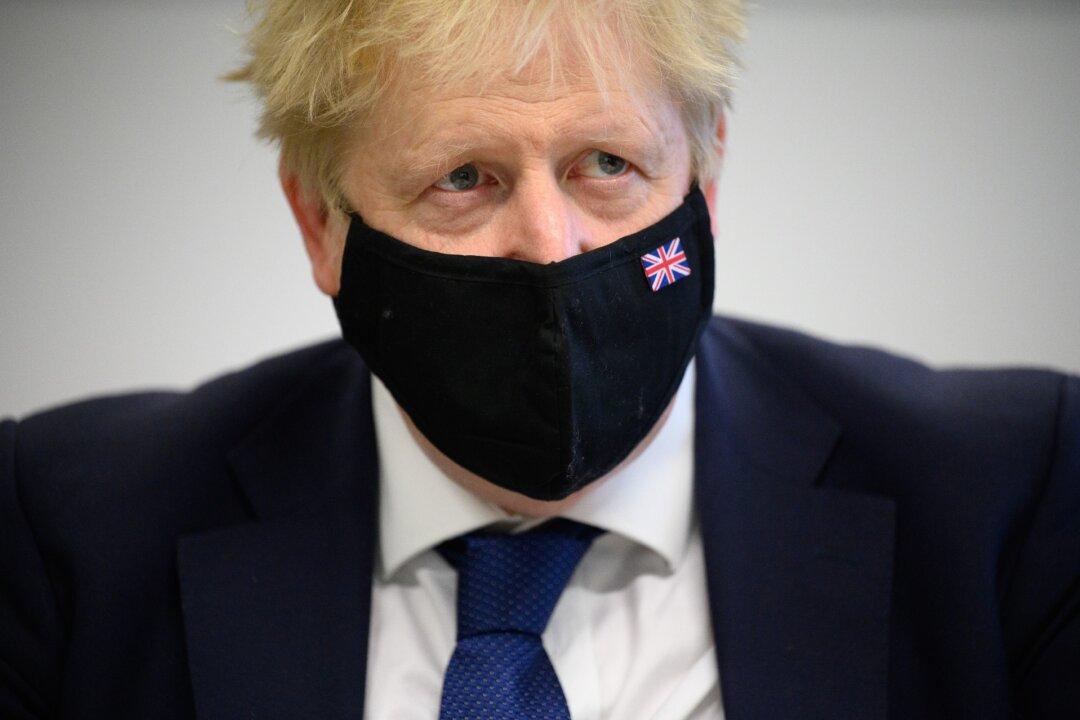British Prime Minister Boris Johnson is under pressure from his backbench Conservative MPs to commit to ending restrictions and start managing COVID-19 as an endemic disease like flu.
Former chief whip Mark Harper, an influential lockdown-sceptic, warned Johnson that he could suffer a significant rebellion later this month if he tries to extend the “Plan B” measures, which were introduced late last year to slow the spread of the Omicron variant of the CCP (Chinese Communist Party) virus, which causes COVID-19.





